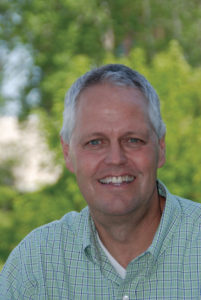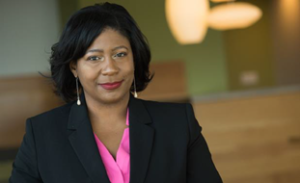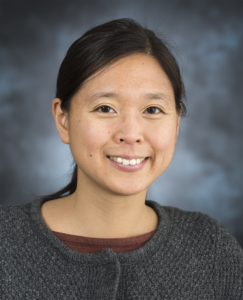
Plenary Speakers
 Dr. David Krabbenhoft is a Senior Research Scientist with the US Geological Survey (USGS), located in Middleton/Madison, Wisconsin. Dave began working on environmental mercury sources and cycling in 1987, and since that time the topic has consumed his professional life. In 1993, Dave established the USGS’s Mercury Research Laboratory, which includes a team of multi-disciplinary mercury scientists and a state-of-the-art analytical facility strictly dedicated to low-level speciation and isotope analysis of mercury in all environmental media. Currently, Dave’s research team is active on projects that span environments as far ranging as the each of the world’s oceans, and freshwater systems from Alaska to Florida, California to New England, and more recently across the entire Great Lakes ecosystem. While environmental mercury research has been his focus since 1988, the specifics of his research team are wide ranging, including: atmospheric mercury sources and transport at local-to-global scales; cycling and fluxes of mercury in aquatic and terrestrial ecosystems; biogeochemical controls on the bioavailability of mercury to methylation; and, human epidemiology studies. Dave continually serves on a number of interagency committees and panels, including presently as a technical expert to the United Nations Environmental Program’s Minamata Convention. In 2006, he served as the co-host for the International Conference on Mercury as a Global Pollutant, which was attended by over 1,200 researchers representing 54 countries across the globe. Since 1990, he has authored or coauthored over 180 papers on mercury in the environment. In 2015, Dave was promoted by USGS, Department of the Interior to Senior Research Scientist (ST), the highest level attainable by a scientist in the federal government system.
Dr. David Krabbenhoft is a Senior Research Scientist with the US Geological Survey (USGS), located in Middleton/Madison, Wisconsin. Dave began working on environmental mercury sources and cycling in 1987, and since that time the topic has consumed his professional life. In 1993, Dave established the USGS’s Mercury Research Laboratory, which includes a team of multi-disciplinary mercury scientists and a state-of-the-art analytical facility strictly dedicated to low-level speciation and isotope analysis of mercury in all environmental media. Currently, Dave’s research team is active on projects that span environments as far ranging as the each of the world’s oceans, and freshwater systems from Alaska to Florida, California to New England, and more recently across the entire Great Lakes ecosystem. While environmental mercury research has been his focus since 1988, the specifics of his research team are wide ranging, including: atmospheric mercury sources and transport at local-to-global scales; cycling and fluxes of mercury in aquatic and terrestrial ecosystems; biogeochemical controls on the bioavailability of mercury to methylation; and, human epidemiology studies. Dave continually serves on a number of interagency committees and panels, including presently as a technical expert to the United Nations Environmental Program’s Minamata Convention. In 2006, he served as the co-host for the International Conference on Mercury as a Global Pollutant, which was attended by over 1,200 researchers representing 54 countries across the globe. Since 1990, he has authored or coauthored over 180 papers on mercury in the environment. In 2015, Dave was promoted by USGS, Department of the Interior to Senior Research Scientist (ST), the highest level attainable by a scientist in the federal government system.
 Chandra Taylor is a senior attorney in the Southern Environmental Law Center’s Chapel Hill office specializing in water quality and environmental justice issues. Chandra first began her career at SELC in 2006, following years of practice as a consumer protections attorney. She also serves as an adjunct professor at University of North Carolina School of Law and on the board of the North Carolina Justice Center. Chandra has led work in North Carolina to force cleanups at contaminated industrial sites, stop water pollution threatening North Carolina communities, and shape transit and landfill policies. In 2007, she helped lead the overhaul of North Carolina’s Solid Waste Management Act, in order to protect lower-wealth communities and communities of color, as well as natural resources, from being disproportionately harmed from landfill-siting.
Chandra Taylor is a senior attorney in the Southern Environmental Law Center’s Chapel Hill office specializing in water quality and environmental justice issues. Chandra first began her career at SELC in 2006, following years of practice as a consumer protections attorney. She also serves as an adjunct professor at University of North Carolina School of Law and on the board of the North Carolina Justice Center. Chandra has led work in North Carolina to force cleanups at contaminated industrial sites, stop water pollution threatening North Carolina communities, and shape transit and landfill policies. In 2007, she helped lead the overhaul of North Carolina’s Solid Waste Management Act, in order to protect lower-wealth communities and communities of color, as well as natural resources, from being disproportionately harmed from landfill-siting.
 G.-H. Crystal Ng is an associate professor in the Department of Earth & Environmental Sciences at the University of Minnesota. She completed her bachelor’s degree in applied mathematics at Harvard University, her PhD degree in Environmental Engineering at MIT, and a Mendenhall postdoctoral fellowship at the U.S. Geological Survey. Her research focuses on integrated hydrological modeling to understand how the hydrological cycle interacts with soil, the atmosphere, plants, and biogeochemistry. In particular, she is interested in how these interactions respond to climate change, land-use and cover change, and contamination. While much of her work has always been motivated by issues relevant to society, she has recently delved into the complex role of human and social dimensions within the physical environment. Her ongoing interdisciplinary project (https://manoominpsin.umn.edu/) on wild rice – an ecologically threatened aquatic plant that is profoundly important to many American Indian tribes throughout the Upper Great Lakes region – has been demonstrating the need for collaboration with tribes, inclusion of other knowledge systems, and research for environmental justice.
G.-H. Crystal Ng is an associate professor in the Department of Earth & Environmental Sciences at the University of Minnesota. She completed her bachelor’s degree in applied mathematics at Harvard University, her PhD degree in Environmental Engineering at MIT, and a Mendenhall postdoctoral fellowship at the U.S. Geological Survey. Her research focuses on integrated hydrological modeling to understand how the hydrological cycle interacts with soil, the atmosphere, plants, and biogeochemistry. In particular, she is interested in how these interactions respond to climate change, land-use and cover change, and contamination. While much of her work has always been motivated by issues relevant to society, she has recently delved into the complex role of human and social dimensions within the physical environment. Her ongoing interdisciplinary project (https://manoominpsin.umn.edu/) on wild rice – an ecologically threatened aquatic plant that is profoundly important to many American Indian tribes throughout the Upper Great Lakes region – has been demonstrating the need for collaboration with tribes, inclusion of other knowledge systems, and research for environmental justice.
